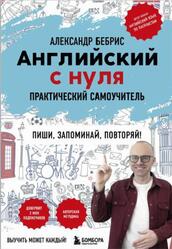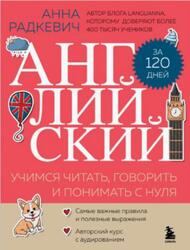The field of grammar. In its usual sense, grammar is the set of rules governing how words are put together in sentences to communicate ideas—or the study of these rules. Native speakers of a language learn them unconsciously. The rules govern most constructions in any given language. The small minority of constructions that lie outside these rules fall mostly into the category of idiom and customary usage.

Nouns.
Traditional Classifications.
Nouns generally. A noun is a word that names something; whether abstract (intangible) or concrete (tangible). It maybe a common noun (the name of a generic class or type of person, place, thing, process, activity, or condition) or a proper noun (the name of a specific person, place, or thing—hence capitalized). A concrete noun may be a count noun (if what it names can be counted—as with horses or cars) or a mass noun (if what it names is uncountable or collective—as with information or salt). A noun-equivalent is a phrase or clause that serves the function of a noun in a sentence {to serve your country is honorable} {bring anyone you like}. Nouns and noun-equivalents are collectively called substantives or (especially throughout this book) noun elements.
Common nouns. A common noun is the generic name of one item in a class or group {a chemical} {a river} {a pineapple}. It is not capitalized unless it begins a sentence or appears in a title. A common noun is usually used with a determiner—that is, an article or other word (e.g., some, few) that indicates the number and definiteness of the noun element {a loaf} {the day} {some person}. Common nouns are often analyzed into three subcategories: concrete nouns, abstract nouns, and collective nouns. A concrete noun is solid or real; it indicates something perceptible to the physical senses {a building} {the wind} {honey}. An abstract noun denotes something you cannot physically see, touch, taste, hear, or smell {joy} {expectation} {neurosis}. A collective noun—which can be viewed as a concrete noun but is often separately categorized—refers to a group or collection of people or things {a crowd of people} {a flock of birds} {a herd of rhinos}. See § 10.
Contents.
Introduction.
1 The field of grammar.
2 Who killed grammar?.
3 Why study grammar?.
4 Overview of the book.
I. The Traditional Parts of Speech.
II. Syntax.
III. Word Formation.
IV. Word Usage.
V. Punctuation.
Select Glossary.
Sources for Inset Quotations.
Select Bibliography.
Acknowledgments.
Word Index.
General Index.
Pronunciation Guide.
Бесплатно скачать электронную книгу в удобном формате, смотреть и читать:
Скачать книгу The Chicago Guide to English Grammar, Usage, and Punctuation, Garner B.A., 2016 - fileskachat.com, быстрое и бесплатное скачивание.
Скачать файл № 1 - pdf
Скачать файл № 2 - djvu
Ниже можно купить эту книгу, если она есть в продаже, и похожие книги по лучшей цене со скидкой с доставкой по всей России.Купить книги
Скачать - djvu - Яндекс.Диск.
Скачать - pdf - Яндекс.Диск.
Дата публикации:
Теги: учебник по английскому языку :: английский язык :: Garner
Смотрите также учебники, книги и учебные материалы:
Следующие учебники и книги:
 Teen2teen, three, teacher’s edition 3, 2015 — Teen2teen, three, teacher s edition 3, 2015. Approach and methodology. The Teen2Teen Student Book was written specifically for teenagers learning … Книги по английскому языку
Teen2teen, three, teacher’s edition 3, 2015 — Teen2teen, three, teacher s edition 3, 2015. Approach and methodology. The Teen2Teen Student Book was written specifically for teenagers learning … Книги по английскому языку Teen2teen, one, teacher’s edition 1, 2015 — Teen2teen, one, teacher s edition 1, 2015. Approach and methodology. The Teen2Teen Student Book was written specifically for teenagers learning … Книги по английскому языку
Teen2teen, one, teacher’s edition 1, 2015 — Teen2teen, one, teacher s edition 1, 2015. Approach and methodology. The Teen2Teen Student Book was written specifically for teenagers learning … Книги по английскому языку Teen2teen, four, teacher’s edition 4, 2015 — Teen2teen, four, teacher s edition 4, 2015. Topic Snapshots. All units contain two Topic Snapshots, one in the form of … Книги по английскому языку
Teen2teen, four, teacher’s edition 4, 2015 — Teen2teen, four, teacher s edition 4, 2015. Topic Snapshots. All units contain two Topic Snapshots, one in the form of … Книги по английскому языку Let’s Learn English with Pleasure, English Grammar in Use, учебное пособие по английскому языку, Ильчинская Е.П., Толмачева И.А., 2020 — Учебное пособие содержит правила и упражнения по основным разделам грамматики. Основная цель развитие активных навыков использования грамматических форм, необходимых как … Книги по английскому языку
Let’s Learn English with Pleasure, English Grammar in Use, учебное пособие по английскому языку, Ильчинская Е.П., Толмачева И.А., 2020 — Учебное пособие содержит правила и упражнения по основным разделам грамматики. Основная цель развитие активных навыков использования грамматических форм, необходимых как … Книги по английскому языку
Предыдущие статьи:
 Живая грамматика английского языка, Иванова Ю.А., 2011 — Оказывается, изучение английской грамматики может быть увлекательным и вовсе несложным! Авторы книги Живая грамматика английского языка доказали это, сумев просто, … Книги по английскому языку
Живая грамматика английского языка, Иванова Ю.А., 2011 — Оказывается, изучение английской грамматики может быть увлекательным и вовсе несложным! Авторы книги Живая грамматика английского языка доказали это, сумев просто, … Книги по английскому языку Spanish english, Bilingual visual dictionary, Gavira A., 2009 — The use of pictures is proven to aid understanding and the retention of information. Working on this principle, this highly … Книги по английскому языку
Spanish english, Bilingual visual dictionary, Gavira A., 2009 — The use of pictures is proven to aid understanding and the retention of information. Working on this principle, this highly … Книги по английскому языку Oxford guide to plain english, Fourth edition, Cutts M., 2013 — My thanks go to those who have given help and advice on parts of this edition. Chapter 23 draws heavily … Книги по английскому языку
Oxford guide to plain english, Fourth edition, Cutts M., 2013 — My thanks go to those who have given help and advice on parts of this edition. Chapter 23 draws heavily … Книги по английскому языку French english, Bilingual visual dictionary, Gavira A., 2009 — The use of pictures is proven to aid understanding and the retention of information. Working on this principle, this highly-illustrated … Книги по английскому языку
French english, Bilingual visual dictionary, Gavira A., 2009 — The use of pictures is proven to aid understanding and the retention of information. Working on this principle, this highly-illustrated … Книги по английскому языку




